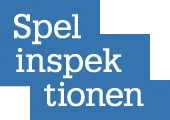All About Swedish Gambling License

The gambling industry in Sweden has undergone significant changes in recent years due to new legislation aimed at regulating gambling in the country. Obtaining a casino license in Sweden now requires strict compliance with high standards of safety, responsible gaming and financial transparency. In this article we will look at the casino licensing process in Sweden, the key requirements and the benefits of this jurisdiction for gambling operators.
Swedish gambling license
Overview of the Swedish gambling industry
The Swedish gambling industry has a long and rich history of regulation. It began in 1934 when the first law regulating lotteries and betting was introduced. In 1994, the Gambling Act was passed, which became the basis for modern regulation. In 2019, there was a significant change with the introduction of the new Gambling Act, which opened up the market to private operators and set strict licensing requirements.
Today, the Swedish gambling industry includes land-based casinos, online gambling, sports betting and lotteries. Sweden has four land-based casinos operated by state-owned operator Casino Cosmopol, located in Stockholm, Gothenburg, Malmö and Sundsvall. Online gambling includes a wide range of gambling activities, from online casinos to sports betting.
As of 2024, there are around 100 licenses issued in Sweden for various types of gambling, including online casinos, bookmakers, and lotteries. Key players in the market include companies like Svenska Spel (state-owned operator), Betsson, LeoVegas and Kindred Group.
Legal framework
The main laws governing gambling in Sweden include the Gambling Act 2018 and the Lotteries Act 1994. The Swedish Gambling Authority (Spelinspektionen) plays a key role in licensing and supervising operators.
Important provisions for licensing:
- Financial solvency: Operators must prove that they have sufficient financial resources to conduct gambling activities.
- Business reputation: Licensees must have an impeccable reputation and meet high standards of ethics.
- Origin of funds: The legitimacy of the origin of capital is verified.
- Prevention of Money Laundering: Strict anti-money laundering and anti-terrorist financing measures.
- Technical standards and security requirements: Compliance with high standards of security and data protection.
- Responsible Gambling: Commitment to protect players from problem gambling.
Types of gambling licenses
There are three types of gambling licenses available in Sweden:
- State license (Statligt tillstånd): Designed for state-owned operators such as Svenska Spel.
- Commercial license (Kommersiellt tillstånd): For private operators involved in online gambling and sports betting.
- Lotteries license (Tillstånd för lotterier): For organizations conducting lotteries and charity games.
Requirements and procedures for obtaining one:
- State license: Issued exclusively to state-owned companies, valid for 5 years, cost varies depending on the scope of activity.
- Commercial License: Requires financial statements, proof of goodwill and compliance with technical standards. Valid for 5 years and costs between SEK 400,000 and 700,000.
- Lottery license: Requires minimal processing costs, valid for up to 5 years.
Advantages of a gambling license in Sweden
Obtaining a gambling license in Sweden offers many advantages:
- Access to a stable and regulated market: Sweden offers a reliable and transparent regulatory system.
- High reputation of the Swedish jurisdiction: A license from Spelinspektionen is recognized internationally.
- Strong consumer protection: Strict measures to protect players and ensure their safety.
- Access to qualified staff and service providers: High level of professionalism and support from local experts.
The process of obtaining a gambling license
Stages of obtaining a license:
- Choosing the type of license: Determining the appropriate license depending on the planned activity.
- Preparation of necessary documents: Collecting financial statements, proof of business reputation and other necessary papers.
- Paying the state fee: Paying the amount corresponding to the selected license type.
- Passing a security check: Checking applicants for compliance with the Spelinspektionen.
- Obtaining a permit: Officially obtain a license from Spelinspektionen.
- Compliance with technical standards: Ensuring that security and data protection systems are compliant.
Timeline and Costs
The timeframe for obtaining a license can vary from 3 to 6 months, depending on the complexity of the application and the type of license. License costs range from SEK 400,000 to 700,000 for commercial licenses, while government licenses may cost more. Actual costs may vary depending on the complexity of the application and additional requirements such as audits and consulting services.
Compliance and Current Requirements
Licensees are required to:
- Maintain records: Submit regular reports to Spelinspektionen.
- Conducting audits: Periodic inspections and audits of activities.
- Anti-money laundering compliance: Adherence to strict procedures and requirements.
- Ensuring player protection: Implementing responsible gambling and consumer protection measures.
- Cooperating with Regulatory Authorities: Communicating with Spelinspektionen and other authorities in a timely manner.
Consequences of non-compliance:
- Penalties: Financial penalties for violations.
- License Suspension: Temporary termination of license.
- License revocation: Complete revocation of the license.
The future of the Swedish gambling industry
The Swedish gambling industry continues to evolve in response to new technologies and changing legal requirements. Blockchain and artificial intelligence are becoming important factors in providing security and improving the user experience. The introduction of innovative technologies helps in preventing fraud and improving responsible gaming.
Growth prospects remain positive, with an increase in the number of licensed operators and market expansion. New legislative initiatives are expected to enhance consumer protection and safety standards.
Conclusion
Casino licensing in Sweden is a complex but important process that provides access to a regulated and stable market. Sweden offers high standards of consumer protection and business reputation. Thorough preparation and compliance are key to a successful gambling business in this jurisdiction. The country attracts operators with its transparent regulation, high safety standards and ample opportunities for business development in a stable and favorable environment.

